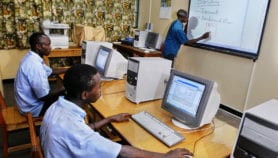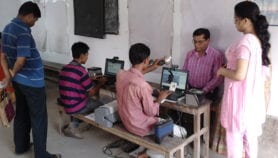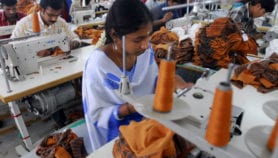By: Zoraida Portillo
Send to a friend
The details you provide on this page will not be used to send unsolicited email, and will not be sold to a 3rd party. See privacy policy.
[LIMA] Solar geoengineering could provoke international tensions, so early collaboration on its governance is needed to prevent deployment of untested technologies, says a report.
It found that reflecting sunlight back into space may be a quick and relatively cheap way of tackling global warming, but it could also have devastating side effects, such as altered weather patterns.
The report was released at the UN Climate Change Conference (COP 17) in Durban last week (1 December) by the Solar Radiation Management Governance Initiative (SRMGI).
The group, comprised of the UK’s Royal Society, the US Environmental Defense Fund and the Academy of Sciences for the Developing World (TWAS) in Italy claims it took a neutral stance on the issue but called for "nations, NGOs [non-governmental organisations] and individuals to engage in a wide-ranging dialogue to explore potential risks and benefits of solar geoengineering, and establish effective governance for research".
Geoengineering aims to manipulate the Earth’s climate system to minimise or reverse climate change effects. Potential examples include putting large mirrors into orbit to deflect the sun’s rays, or injecting aerosols into the stratosphere to the same effect.
A study published in Nature Geoscience last year found that the effects of such interventions may vary across regions, making it difficult to agree on their deployment.
John Shepherd, fellow of the Royal Society and a co-chair of SRMGI, hopes all sectors of society — especially in the developing world — will join the debate.
"Eventually we shall need governments to get involved too, but there is a big role for citizens and NGOs to participate in the process," he told SciDev.Net.
The report also found that there is a lack of information on these new technologies, but this may not prevent some from trying them out.
Clive Hamilton, professor of public ethics at the Centre for Applied Philosophy and Public Ethics, in Australia, said that governments of rich countries may see geoengineering "as an easy way out of their responsibility to cut greenhouse gas emissions".
Ronald Woodman, director of the Geophysical Institute of Peru, told SciDev.Net that developing countries need to focus on local issues rather than investing in geoengineering projects.
"What we need is trying to predict what will happen in our local and regional [climate change] scenarios, not globally."
In its 2009 report, the Royal Society called for further research and strict international guidelines, but stressed that it might be decades before schemes can be implemented. The UN Intergovernmental Panel on Climate Change (IPCC) is also assessing the scientific merit of various geoengineering proposals in its fifth assessment report, expected in 2014.













